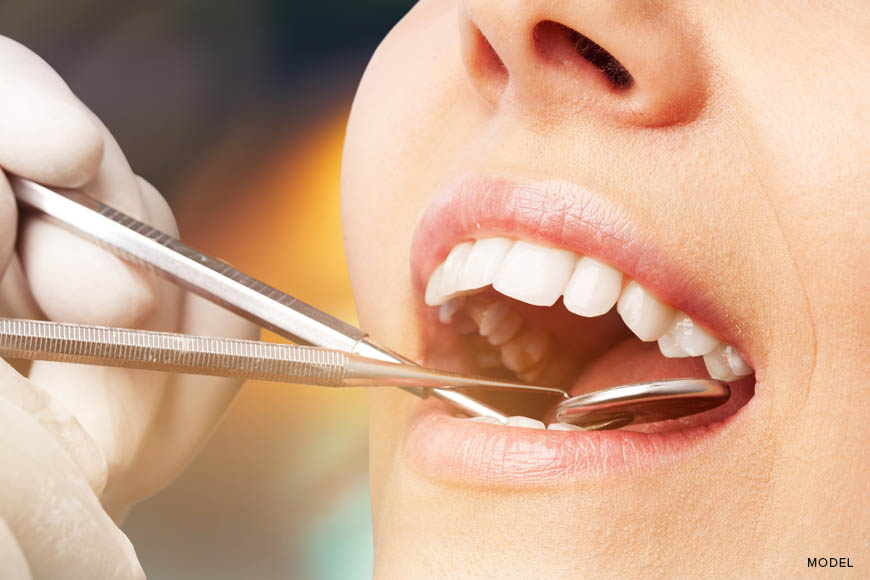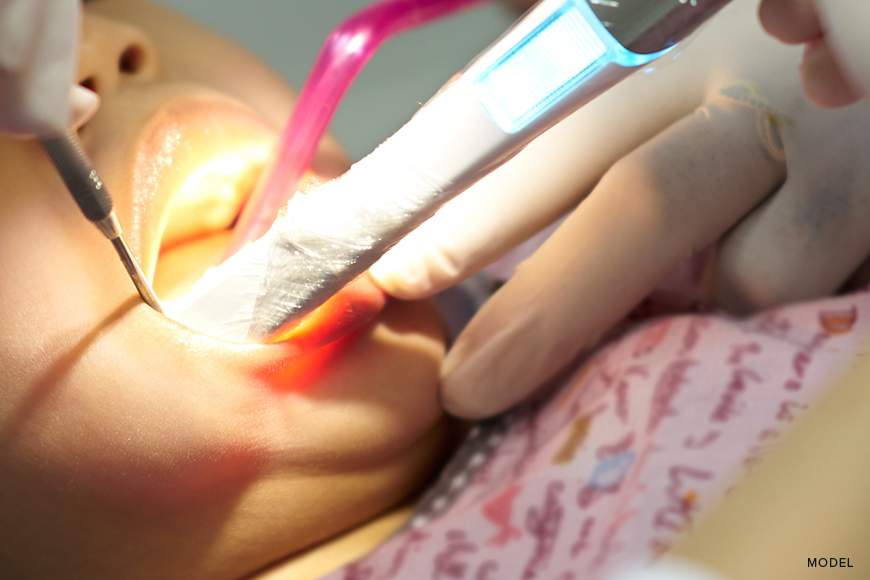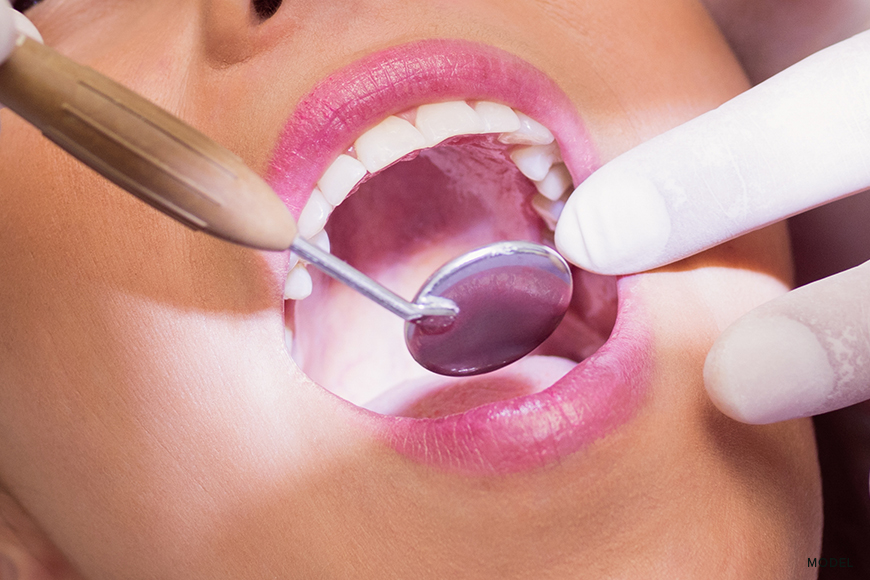Wisdom teeth, the last set of molars to emerge in the back corners of your mouth, typically appear in your late teens or early twenties. Although they are a natural part of your dental anatomy, modern diets and smaller jaws often leave insufficient space for these teeth to erupt properly. This can lead to a host of issues, including overcrowding, misalignment, impaction, pain, and even infection.
When issues are present it may be best to opt for a wisdom tooth removal, but the journey is not so easy. It can stir up a mix of emotions, from relief at addressing persistent dental pain to apprehension about the procedure itself. The experience at Madison Dentistry & Implant Center is guaranteed to help you through the procedure.
Why Removal Is Sometimes Necessary
Not everyone will need their wisdom teeth removed, but it becomes a necessity when these teeth become impacted—meaning they cannot fully erupt through the gum line. This can lead to painful crowding, damage to neighboring teeth, and other dental problems. Regular check-ups can help your dentist determine whether wisdom teeth removal is right for you.
Preparing for Your Surgery
Madison Dentistry & Implant Center stands ready to guide you through this procedure with a blend of technical expertise and compassionate care. Preparation is key to ensuring a successful surgery and swift recovery.
Selecting the Right Surgeon
The team at Madison Dentistry & Implant Center consists of seasoned dental professionals with extensive experience in oral surgery. They employ the latest techniques and follow stringent safety protocols to provide you with the highest standard of care. When selecting your surgeon, it’s important to discuss their qualifications, experience, and approach to patient care.
Scheduling Your Appointment
Timing your surgery is important. It’s generally advisable to choose a period when you can afford some downtime for recovery—often a long weekend or a quiet week on your social calendar. The administrative staff at Madison Dentistry & Implant Center will work with you to find the most suitable time for your procedure, accommodating your personal and professional commitments.
What to Expect During the Consultation
At your pre-surgery consultation, expect a thorough examination of your mouth and a discussion of your dental and medical history. This is the perfect opportunity to ask questions about the procedure, anesthesia options, and recovery expectations. You may also be asked to do an X-ray scan by your doctor.
The Pre-Surgical Checklist
- Dietary Considerations Before Surgery
Before anesthesia, you will be required to fast, usually starting at midnight the night before your surgery. In the days leading up to the procedure, it’s best to avoid alcohol and smoking, as they can prolong recovery time. Stick to eating soft foods that require minimal chewing to lessen the workload on your teeth. - Medications and Supplements
During your consultation, make sure to disclose all medications and supplements you are taking. Some substances can affect blood clotting or interact with anesthesia. Your surgeon will guide you on which medications to stop or continue. - Arranging Transportation and Aftercare
You won’t be able to drive immediately following your surgery due to the lingering effects of anesthesia. Arrange for a friend or family member to drive you home and stay with you for at least the first 24 hours post-operation. Plan for someone to help you with aftercare, especially if you experience significant grogginess or discomfort. - Pre-Op Procedures
You will undergo a pre-operative check to ensure you’re ready for surgery. This may include verifying your fasting status, going over your health history one last time, and setting up the intravenous line if necessary for your anesthesia. - What to Wear
Comfort should be your priority when selecting your attire for surgery day. Loose-fitting clothing that can accommodate a blood pressure cuff and other monitoring devices is ideal. Avoid wearing jewelry, contact lenses, or dentures.
Post-Op Care
Immediately following your surgery, you’ll be given a set of post-op instructions tailored to your specific needs. This will include guidance on how to manage bleeding, swelling, and maintaining oral hygiene during the first crucial hours and days of recovery.
Recovery can vary from person to person, but with careful adherence to post-op instructions, most patients find the healing process manageable. The goal is to avoid any complications like dry sockets, infections, or prolonged discomfort.
- Managing Pain and Swelling
Pain and swelling are normal reactions to surgery. Your oral surgeon will recommend pain relief methods, which may include prescribed medications or over-the-counter options like ibuprofen. Using ice packs as directed can also greatly reduce swelling. - Dietary Adjustments Post-Surgery
To avoid irritating the surgical site, stick to a diet of soft, easy-to-chew foods. Hydration is also key, but avoid using straws as the suction can disrupt the healing process. - Follow-Up Visits
Your post-operative appointments at Madison Dentistry & Implant Center are crucial for ensuring that your recovery is on track. Attend these follow-ups as scheduled to allow your dental team to monitor your healing and address any concerns.
The thought of having your wisdom teeth removed might seem daunting, but with the right preparation and expert care at Madison Dentistry & Implant Center, you can look forward to a smooth procedure and a swift, comfortable recovery. Contact us today for a successful outcome closely before and after the procedure.
FAQs
- How long before the surgery should I stop eating and drinking? You will typically be instructed to fast for 8 to 12 hours before your surgery. Your oral surgeon will give you specific instructions based on your procedure’s time.
- Can I return to work or school the day after my wisdom teeth are removed? Most patients need a few days of rest post-surgery before resuming normal activities. This can vary based on individual recovery and the complexity of the extraction.
- What are some examples of soft foods I can eat after surgery? Foods like yogurt, applesauce, broth, and oatmeal are excellent choices. As you heal, you can gradually introduce more solid foods.
- How long does the pain and swelling typically last? While swelling typically subsides within a few days, mild to moderate pain can last for up to a week. If pain persists or worsens, contact your surgeon.
- When should I be concerned about my recovery process? If you experience symptoms like excessive bleeding, severe pain, swelling that worsens after two or three days, or signs of infection (fever, pus, foul taste), reach out to Madison Dentistry & Implant Center immediately.





